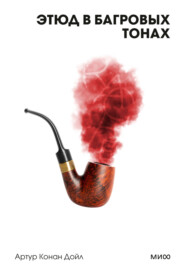По всем вопросам обращайтесь на: info@litportal.ru
(©) 2003-2025.
✖
Micah Clarke
Настройки чтения
Размер шрифта
Высота строк
Поля
‘My name is Captain Micah Clarke,’ I answered.
The two officers looked at each other, and the smaller one gave a long whistle. ‘It is the very man!’ said he. ‘This comes of asking questions! Rat me, if I had not misgivings that it might prove to be so. They said that he was large of limb.’
‘Tell me, sirrah, have you ever known one Major Ogilvy of the Horse Guards Blue?’ asked the Captain.
‘Seeing that I had the honour of taking him prisoner,’ I replied, ‘and seeing also that he hath shared soldier’s fare and quarters with me ever since, I think I may fairly say that I do know him.’
‘Cast loose the cord!’ said the officer, and the hangman reluctantly slipped the cord over my head once more. ‘Young man, you are surely reserved for something great, for you will never be nearer your grave until you do actually step into it. This Major Ogilvy hath made great interest both for you and for a wounded comrade of yours who lies at Bridgewater. Your name hath been given to the commanders of horse, with orders to bring you in unscathed should you be taken. Yet it is but fair to tell you that though the Major’s good word may save you from martial law, it will stand you in small stead before a civil judge, before whom ye must in the end take your trial.’
‘I desire to share the same lot and fortune as has befallen my companions-in-arms,’ I answered.
‘Nay, that is but a sullen way to take your deliverance,’ cried the smaller officer. ‘The situation is as flat as sutler’s beer. Otway would have made a bettor thing of it. Can you not rise to the occasion? Where is she?’
‘She! Who?’ I asked.
‘She. The she. The woman. Your wife, sweetheart, betrothed, what you will.’
‘There is none such,’ I answered.
‘There now! What can be done in a case like that?’ cried he despairingly. ‘She should have rushed in from the wings and thrown herself upon your bosom. I have seen such a situation earn three rounds from the pit. There is good material spoiling here for want of some one to work it up.’
‘We have something else to work up, Jack,’ exclaimed his companion impatiently. ‘Sergeant Gredder, do you with two troopers conduct the prisoner to Gommatch Church. It is time that we were once more upon our way, for in a few hours the darkness will hinder the pursuit.’
At the word of command the troopers descended into the field where their horses were picketed, and were speedily on the march once more, the tall Captain leading them, and the stage-struck cornet bringing up the rear. The sergeant to whose care I had been committed – a great square-shouldered, dark-browed man – ordered my own horse to be brought out, and helped me to mount it. He removed the pistols from the holsters, however, and hung them with my sword at his own saddle-bow.
‘Shall I tie his feet under the horse’s belly?’ asked one of the dragoons.
‘Nay, the lad hath an honest face,’ the sergeant answered. ‘If he promises to be quiet we shall cast free his arms.’
‘I have no desire to escape,’ said I.
‘Then untie the rope. A brave man in misfortune hath ever my goodwill, strike me dumb else! Sergeant Gredder is my name, formerly of Mackay’s and now of the Royals – as hard-worked and badly-paid a man as any in his Majesty’s service. Right wheel, and down the pathway! Do ye ride on either side, and I behind! Our carbines are primed, friend, so stand true to your promise!’
‘Nay, you can rely upon it,’ I answered.
‘Your little comrade did play you a scurvy trick,’ said the sergeant, ‘for seeing us ride down the road he did make across to us, and bargained with the Captain that his life should be spared, on condition that he should deliver into our hands what he described as one of the stoutest soldiers in the rebel army. Truly you have thews and sinews enough, though you are surely too young to have seen much service.’
‘This hath been my first campaign,’ I answered.
‘And is like to be your last,’ he remarked, with soldierly frankness. ‘I hear that the Privy Council intend to make such an example as will take the heart out of the Whigs for twenty years to come. They have a lawyer coming from London whose wig is more to be feared than our helmets. He will slay more men in a day than a troop of horse in a ten-mile chase. Faith! I would sooner they took this butcher-work into their own hands. See those bodies on yonder tree. It is an evil season when such acorns grow upon English oaks.’
‘It is an evil season,’ said I, ‘when men who call themselves Christians inflict such vengeance upon poor simple peasants, who have done no more than their conscience urged them. That the leaders and officers should suffer is but fair. They stood to win in case of success, and should pay forfeit now that they have lost. But it goes to my heart to see those poor godly country folk so treated.’
‘Aye, there is truth in that,’ said the sergeant. ‘Now if it were some of these snuffle-nosed preachers, the old lank-haired bell-wethers who have led their flocks to the devil, it would be another thing. Why can they not conform to the Church, and be plagued to them? It is good enough for the King, so surely it is good enough for them; or are their souls so delicate that they cannot satisfy themselves with that on which every honest Englishman thrives? The main road to Heaven is too common for them. They must needs have each a by-path of their own, and cry out against all who will not follow it.’
‘Why,’ said I, ‘there are pious men of all creeds. If a man lead a life of virtue, what matter what he believes?
‘Let a man keep his virtue in his heart,’ quoth Sergeant Gredder. ‘Let him pack it deep in the knapsack of his soul. I suspect godliness which shows upon the surface, the snuffling talk, the rolling eyes, the groaning and the hawking. It is like the forged money, which can be told by its being more bright and more showy than the real.’
‘An apt comparison!’ said I. ‘But how comes it, sergeant, that you have given attention to these matters? Unless they are much belied, the Royal Dragoons find other things to think of.’
‘I was one of Mackay’s foot,’ he answered shortly. ‘I have heard of him,’ said I. ‘A man, I believe, both of parts and of piety.’
‘That, indeed, he is,’ cried Sergeant Gredder warmly. ‘He is a man stern and soldierly to the outer eye, but with the heart of a saint within him. I promise you there was little need of the strapado in his regiment, for there was not a man who did not fear the look of sorrow in his Colonel’s eyes far more than he did the provost-marshal.’
During the whole of our long ride I found the worthy sergeant a true follower of the excellent Colonel Mackay, for he proved to be a man of more than ordinary intelligence, and of serious and thoughtful habit. As to the two troopers, they rode on either side of me as silent as statues; for the common dragoons of those days could but talk of wine and women, and were helpless and speechless when aught else was to the fore. When we at last rode into the little village of Gommatch, which overlooks the plain of Sedgemoor, it was with regret on each side that I bade my guardian adieu. As a parting favour I begged him to take charge of Covenant for me, promising to pay a certain sum by the month for his keep, and commissioning him to retain the horse for his own use should I fail to claim him within the year. It was a load off my mind when I saw my trusty companion led away, staring back at me with questioning eyes, as though unable to understand the separation. Come what might, I knew now that, he was in the keeping of a good man who would see that no harm befell him.
Chapter XXXIV. Of the Coming of Solomon Sprent
The church of Gommatch was a small ivy-clad building with a square Norman tower, standing in the centre of the hamlet of that name. Its great oaken doors, studded with iron, and high narrow windows, fitted it well for the use to which it was now turned. Two companies of Dumbarton’s Foot had been quartered in the village, with a portly Major at their head, to whom I was handed over by Sergeant Gredder, with some account of my capture, and of the reasons which had prevented my summary execution.
Night was now drawing in, but a few dim lamps, hung here and there upon the walls, cast an uncertain, flickering light over the scene. A hundred or more prisoners were scattered about upon the stone floor, many of them wounded, and some evidently dying. The hale had gathered in silent, subdued groups round their stricken friends, and were doing what they could to lessen their sufferings. Some had even removed the greater part of their clothing in order to furnish head-rests and pallets for the wounded. Here and there in the shadows dark kneeling figures might be seen, and the measured sound of their prayers rang through the aisles, with a groan now and again, or a choking gasp as some poor sufferer battled for breath. The dim, yellow light streaming over the earnest pain-drawn faces, and the tattered mud-coloured figures, would have made it a fitting study for any of those Low Country painters whose pictures I saw long afterwards at The Hague.
On Thursday morning, the third day after the battle, we were all conveyed into Bridgewater, where we were confined for the remainder of the week in St. Mary’s Church, the very one from the tower of which Monmouth and his commanders had inspected Feversham’s position. The more we heard of the fight from the soldiers and others, the more clear it became that, but for the most unfortunate accidents, there was every chance that our night attack might have succeeded. There was scarcely a fault which a General could commit which Feversham had not been guilty of. He had thought too lightly of his enemy, and left his camp entirely open to a surprise. When the firing broke out he sprang from his couch, but failing to find his wig, he had groped about his tent while the battle was being decided, and only came out when it was well-nigh over. All were agreed that had it not been for the chance of the Bussex Rhine having been overlooked by our guides and scouts, we should have been among the tents before the men could have been called to arms. Only this and the fiery energy of John Churchill, the second in command, afterwards better known under a higher name, both to French and to English history, prevented the Royal army from meeting with a reverse which might have altered the result of the campaign.(Note K, Appendix.) Should ye hear or read, then, my dear children, that Monmouth’s rising was easily put down, or that it was hopeless from the first, remember that I, who was concerned in it, say confidently that it really trembled in the balance, and that this handful of resolute peasants with their pikes and their scythes were within an ace of altering the whole course of English history. The ferocity of the Privy Council, after the rebellion was quelled, arose from their knowledge of how very close it had been to success.
I do not wish to say too much of the cruelty and barbarity of the victors, for it is not good for your childish ears to hear of such doings. The sluggard Feversham and the brutal Kirke have earned themselves a name in the West, which is second only to that of the arch villain who came after them. As for their victims, when they had hanged and quartered and done their wicked worst upon them, at least they left their names in their own little villages, to be treasured up and handed from generation to generation, as brave men and true who had died for a noble cause. Go now to Milverton, or to Wiveliscombe, or to Minehead, or to Colyford, or to any village through the whole breadth and length of Somersetshire, and you will find that they have not forgotten what they proudly call their martyrs. But where now is Kirke and where is Feversham? Their names are preserved, it is true, but preserved in a county’s hatred. Who can fail to see now that these men in punishing others brought a far heavier punishment upon themselves? Their sin hath indeed found them out.
They did all that wicked and callous-hearted men could do, knowing well that such deeds were acceptable to the cold-blooded, bigoted hypocrite who sat upon the throne. They worked to win his favour, and they won it. Men were hanged and cut down and hanged again. Every cross-road in the country was ghastly with gibbets. There was not an insult or a contumely which might make the pangs of death more unendurable, which was not heaped upon these long-suffering men; yet it is proudly recounted in their native shire that of all the host of victims there was not one who did not meet his end with a firm lip, protesting that if the thing were to do again he was ready to do it.
At the end of a week or two news came of the fugitives. Monmouth, it seems, had been captured by Portman’s yellow coats when trying to make his way to the New Forest, whence he hoped to escape to the Continent. He was dragged, gaunt, unshaven, and trembling, out of a bean-field in which he had taken refuge, and was carried to Ringwood, in Hampshire. Strange rumours reached us concerning his behaviour – rumours which came to our ears through the coarse jests of our guards. Some said that he had gone on his knees to the yokels who had seized him. Others that he had written to the King offering to do anything, even to throw over the Protestant cause, to save his head from the scaffold.(Note L, Appendix.) We laughed at these stories at the time, and set them down as inventions of our enemies. It seemed too impossible that at a time when his supporters were so sternly and so loyally standing true to him, he, their leader, with the eyes of all men upon him, should be showing less courage than every little drummer-boy displays, who trips along at the head of his regiment upon the field of battle. Alas! time showed that the stories were indeed true, and that there was no depth of infamy to which this unhappy man would not descend, in the hope of prolonging for a few years that existence which had proved a curse to so many who trusted him.
Of Saxon no news had come, good or bad, which encouraged me to hope that he had found a hiding-place for himself. Reuben was still confined to his couch by his wound, and was under the care and protection of Major Ogilvy. The good gentleman came to see me more than once, and endeavoured to add to my comfort, until I made him understand that it pained me to find myself upon a different footing to the brave fellows with whom I had shared the perils of the campaign. One great favour he did me in writing to my father, and informing him that I was well and in no pressing danger. In reply to this letter I had a stout Christian answer from the old man, bidding me to be of good courage, and quoting largely from a sermon on patience by the Reverend Josiah Seaton of Petersfield. My mother, he said, was in deep distress at my position, but was held up by her confidence in the decrees of Providence. He enclosed a draft for Major Ogilvy, commissioning him to use it in whatever way I should suggest. This money, together with the small hoard which my mother had sewed into my collar, proved to be invaluable, for when the gaol fever broke out amongst us I was able to get fitting food for the sick, and also to pay for the services of physicians, so that the disease was stamped out ere it had time to spread.
Early in August we were brought from Bridgewater to Taunton, where we were thrown with hundreds of others into the same wool storehouse where our regiment had been quartered in the early days of the campaign. We gained little by the change, save that we found that our new guards were somewhat more satiated with cruelty than our old ones, and were therefore less exacting upon their prisoners. Not only were friends allowed in occasionally to see us, but books and papers could be obtained by the aid of a small present to the sergeant on duty. We were able, therefore, to spend our time with some degree of comfort during the month or more which passed before our trial.
One evening I was standing listlessly with my back against the wall, looking up at a thin slit of blue sky which showed itself through the narrow window, and fancying myself back in the meadows of Havant once more, when a voice fell upon my ear which did, indeed, recall me to my Hampshire home. Those deep, husky tones, rising at times into an angry roar, could belong to none other than my old friend the seaman. I approached the door from which the uproar came, and all doubt vanished as I listened to the conversation.
‘Won’t let me pass, won’t ye?’ he was shouting. ‘Let me tell you I’ve held on my course when better men than you have asked me to veil topsails. I tell you I have the admiral’s permit, and I won’t clew up for a bit of a red-painted cock-boat; so move from athwart my hawse, or I may chance to run you down.’
‘We don’t know nothing about admirals here,’ said the sergeant of the guard. ‘The time for seeing prisoners is over for the day, and if you do not take your ill-favoured body out of this I may try the weight o’ my halberd on your back.’
‘I have taken blows and given them ere you were ever thought of, you land-swab,’ roared old Solomon. ‘I was yardarm and yardarm with De Ruyter when you were learning to suck milk; but, old as I am, I would have you know that I am not condemned yet, and that I am fit to exchange broadsides with any lobster-tailed piccaroon that ever was triced up to a triangle and had the King’s diamonds cut in his back. If I tack back to Major Ogilvy and signal him the way that I have been welcomed, he’ll make your hide redder than ever your coat was.’
‘Major Ogilvy!’ exclaimed the sergeant, in a more respectful voice. ‘If you had said that your permit was from Major Ogilvy it would have been another thing, but you did rave of admirals and commodores, and God knows what other outlandish talk!’
‘Shame on your parents that they should have reared you with so slight a knowledge o’ the King’s English!’ grumbled Solomon. ‘In truth, friend, it is a marvel to me why sailor men should be able to show a lead to those on shore in the matter of lingo. For out of seven hundred men in the ship Worcester– the same that sank in the Bay of Funchal – there was not so much as a powder-boy but could understand every word that I said, whereas on shore there is many a great jolterhead, like thyself, who might be a Portugee for all the English that he knows, and who stares at me like a pig in a hurricane if I do lint ask him what he makes the reckoning, or how many bells have gone.’
‘Whom is it that you would see?’ asked the sergeant gruffly. ‘You have a most infernally long tongue.’
‘Aye, and a rough one, too, when I have fools to deal with,’ returned the seaman. ‘If I had you in my watch, lad, for a three years’ cruise, I would make a man of you yet.’
‘Pass the old man through!’ cried the sergeant furiously, and the sailor came stumping in, with his bronzed face all screwed up and twisted, partly with amusement at his victory over the sergeant, and partly from a great chunk of tobacco which he was wont to stow within his cheek. Having glanced round without perceiving me, he put his hands to his mouth and bellowed out my name, with a string of ‘Ahoys!’ which rang through the building.
‘Here I am, Solomon,’ said I, touching him on the shoulder.
‘God bless you, lad! God bless you!’ he cried, wringing my hand. ‘I could not see you, for my port eye is as foggy as the Newfoundland banks, and has been ever since Long Sue Williams of the Point hove a quart pot at it in the Tiger inn nigh thirty year agone. How are you? All sound, alow and aloft?’
‘As well as might be,’ I answered. ‘I have little to complain of.’

















